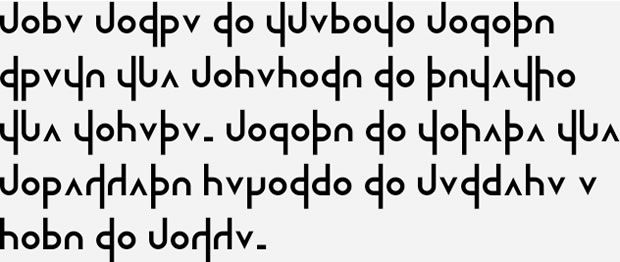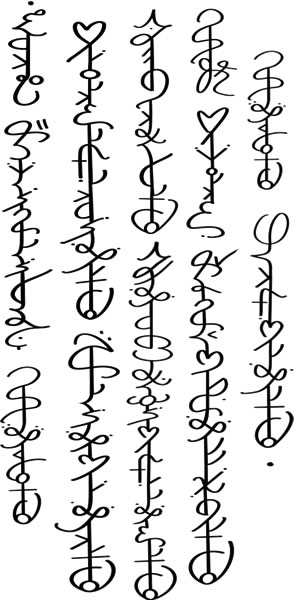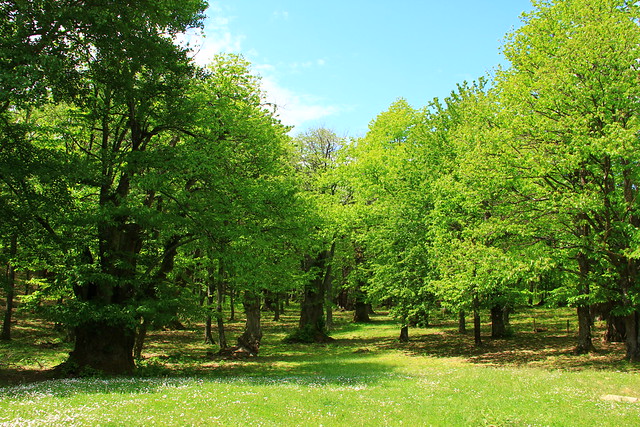Podcast: Play in new window | Download
Here’s the latest news from the world of Omniglot.
There are new language pages about:
- Arhuaco (Ikʉ), a Chibchan language spoken in the Sierra Nevada de Santa Marta region in northern Colombia.
- Mussau-Emira, an Oceanic language spoken on the islands of Mussau and Emira in New Ireland Province of Papua New Guinea.
- Gumuz (ŋgiša baha), a Nilo-Saharan language spoken in northwestern Ethiopia and southeastern Sudan.
- Avatime (Sị̀yàsɛ̄̀), a Kwa language spoken in eastern Ghana.
New adapted script: Suomalais-Ugrilainen Arabialainen Kirjaimisto (سوُوَمالایس-ئوُگریلاینەن ئارابیئالاینەن کیریامیستوَ ) / Finno-Ugric Arabic Alphabet, an adaptation of the Arabic script to write Finnish, Estonian and Hungarian devised by A. Elbrens.

New numbers pages:
- Arhuaco (Ikʉ), a Chibchan language spoken in northern Colombia.
- Mussau-Emira, an Oceanic language spoken in New Ireland Province in Papua New Guinea
- Kumak, a Northern New Caledonian language spoken in the North Province of New Caledonia
New idiom page: The Grass is Always Greener (on the other side of the fence) containing equivalents of this saying in various languages.
I also wrote a new song based on this idiom called The Side Other. It goes something like this:
On the Omniglot blog there’s a new post called Losing the North, which is about various ways to say that you’re lost, dazed or confused in French, and there’s the usual Language Quiz. See if you can guess what language this is:
Here’s a clue: this language is spoken in Colombia.
The mystery language in last week’s language quiz was Zaiwa (Tsaiwa), a Burmish language spoken in southwestern China and eastern Myanmar.
There are new Celtiadur posts about words for Sure, Certainly and Hiding & Concealment, and I made improvements to the post about words for Hills.
In this week’s Celtic Pathways podcast, entitled Protruberences, we look into words for hill, breast and related things in Celtic languages, and find related words in other languages.
For more Omniglot News see:
https://www.omniglot.com/news/
https://twitter.com/Omniglossia
https://www.facebook.com/groups/omniglot/
https://www.facebook.com/Omniglot-100430558332117
You can also listen to this podcast on: Apple Podcasts, Amazon Music, Stitcher, TuneIn, Podchaser, PlayerFM or podtail.
If you would like to support this podcast, you can make a donation via PayPal or Patreon, or contribute to Omniglot in other ways.
Radio Omniglot podcasts are brought to you in association with Blubrry Podcast Hosting, a great place to host your podcasts. Get your first month free with the promo code omniglot.







